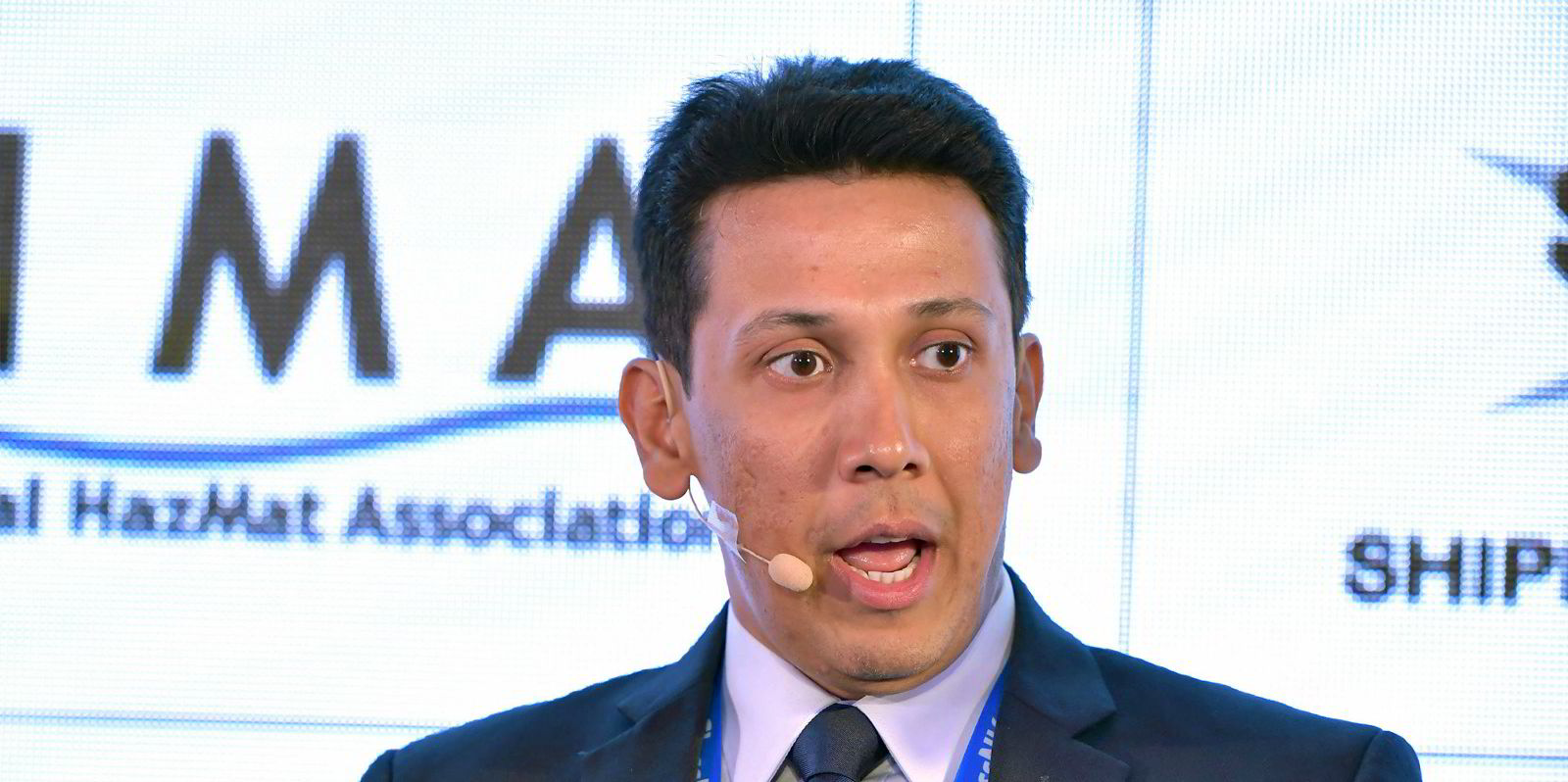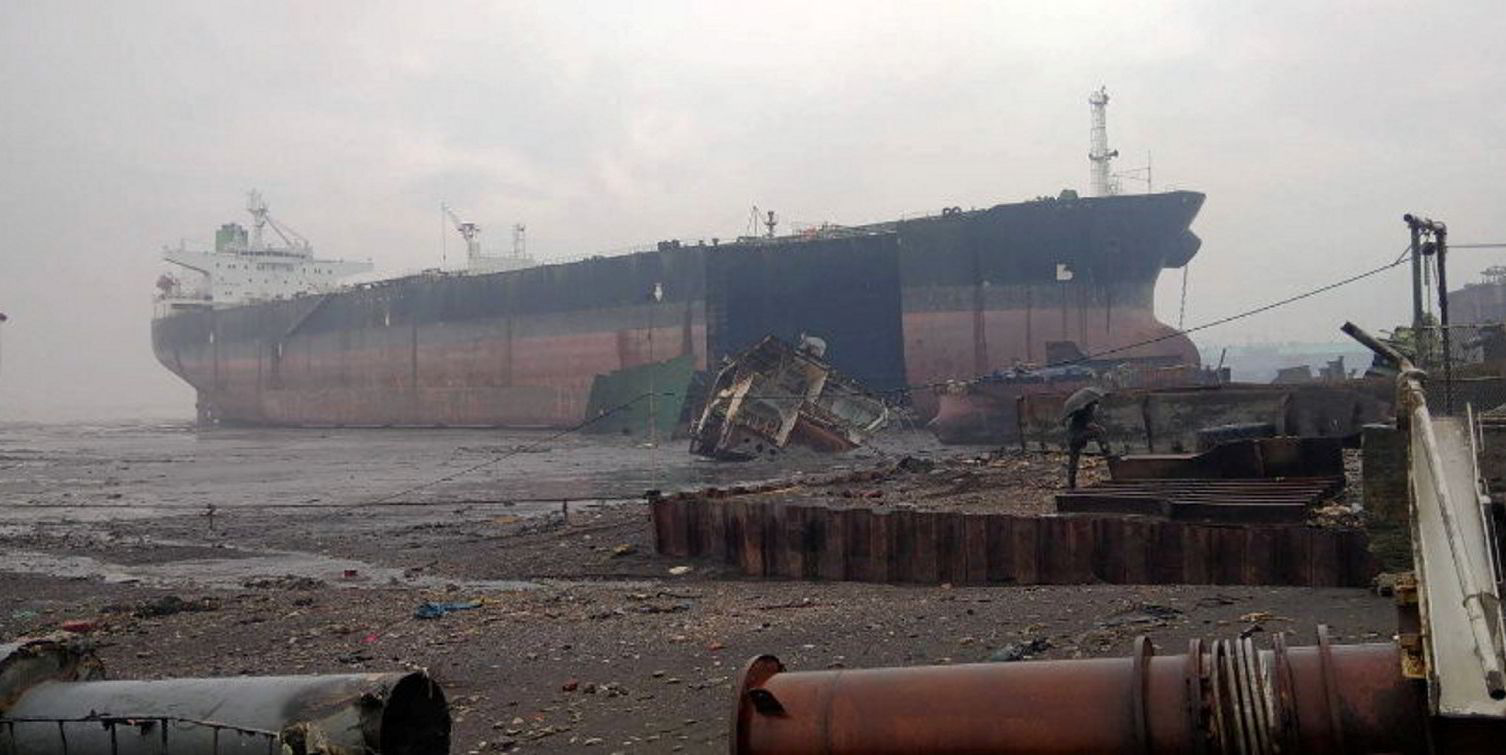Shipowners will face continued questions about pricing levels and green recycling yard capacity as the industry braces for a flood of unwanted ships in the coming years.
Panellists at the TradeWinds Ship Recycling Forum pulled no punches in debating the constant tension between profit and sustainability in the scrapping sector.
Prashant Widge, head of responsible ship recycling at Denmark's containership giant AP Moller-Maersk, said demolition volumes are expected to nearly quadruple over the next 12 years.
He said solutions need to be optimised for higher throughput from recycling yards, with more investment needed in technical upgrades.
Widge said there are huge opportunities for new scrapping locations outside the Indian subcontinent and Turkey.
He identified post-panamax containerships as a challenge for ship breakers in future years, with European Union-approved recyclers lacking capacity for these kinds of vessels.
"This is something we are looking at closely," the former master said.
"Some of the EU yards do not really have ship recycling as their core market. Shipowners like us are facing more challenges. We had to wait our turn to put one ship into Turkey last year.
Widge said Maersk wants to be a catalyst for technical and capacity boosts.
Demolish the ship, not the value

GMS chief executive Anil Sharma, whose company is a major cash buyer of ships for demolition, said the outfit's job is to provide the best economic balance between sustainability and "not demolishing" the value of the asset.
He said he is struggling to persuade 80% of his shipowner clients to go green, with price "always an issue".
Sharma added for example that not too many old VLCCs are going to green yards, by which he means those compliant with the Hong Kong International Convention for the Safe and Environmentally Sound Recycling of Ships (Hong Kong Convention).
He said that some tanker owners will purposely state that a vessel has only 200 cbm of sludge and residues on board, when they "know full well" the actual amount is more than 1,000 tonnes, to keep the sales price from dropping.
But this figure is given "without guarantee", the CEO said.
Questioned about where GMS' vessels end up, Sharma admitted the company does not sell into green yards exclusively, but explains his company has training programmes in Pakistan and Bangladesh to work with yards on sustainable recycling.
He explained there would not be enough capacity at Hong Kong Convention yards if those countries were avoided.
India well ahead of Bangladesh and Pakistan
Owners would largely be choosing between 95 compliant yards in India, and some in Turkey. There is only one Hong Kong Convention-approved yard in Bangladesh and none in Pakistan.
"Is that the position that we as an industry have to take?" Sharma asked.
So far in 2021, all GMS sales into India have been to Hong Kong Convention-compliant yards, compared with 81% in 2020.
He dismissed the European Union's separate criteria on vessel demolition, the EU Ship Recycling Regulation, as "greenwashing".
Other panellists were also dismissive of the European rules.
Keiji Tomoda, vice president of the Japanese Shipowners' Association, said the Hong Kong Convention has to be ratified and then improved.
"The majority of shipowners are keeping to their traditional position, with less of an interest in green recycling," he added.
Tomoda believes Hong Kong Convention enforcement is essential to change minds.
Martin Kroeger, managing director of German shipowners' association VDR, said any attempt to introduce regional rules in a global industry becomes very complicated.
He said that having no South Asian yards on the European-approved list is a failure of that regulation.
Scrapping wave or retrofitting flood?
And Kroeger also doubts whether there will be a wave of scrapping in five years time due to a shortage of ships for trading.
"I would question if it will not rather be a retrofitting wave we will see," he added.
Andrew Stephens, executive director of the Sustainable Shipping Initiative, said that in the absence of regulation, financial stakeholders and cargo owners are building pressure on owners and yards.
"Barriers and incentives need to be adjusted to support transitions to responsible recycling," he said.
Widge added that without this pressure from other stakeholders "we're going to see the laggards" keep on using unsafe yards.







